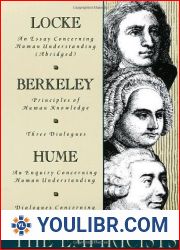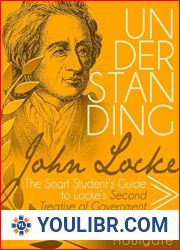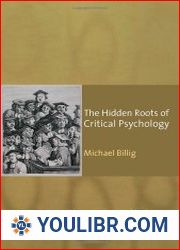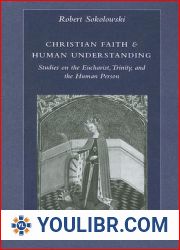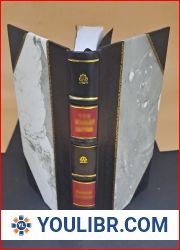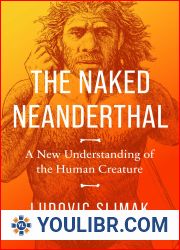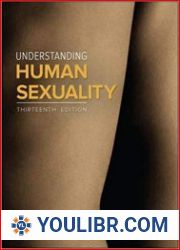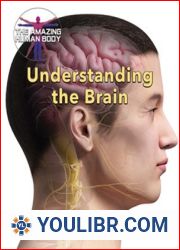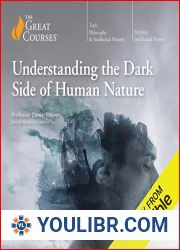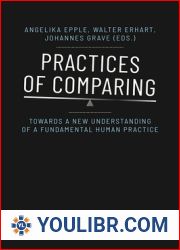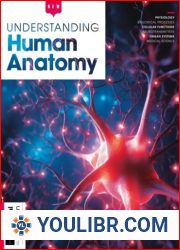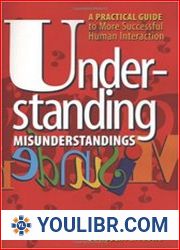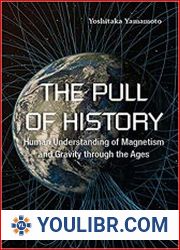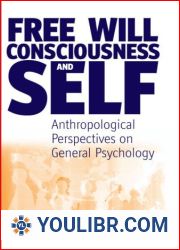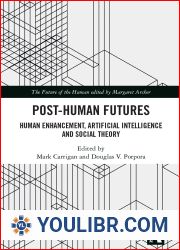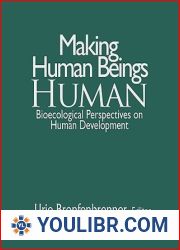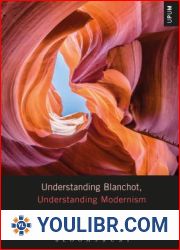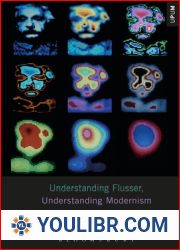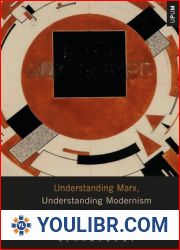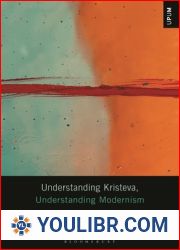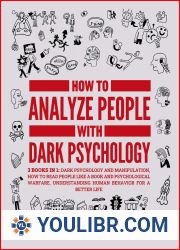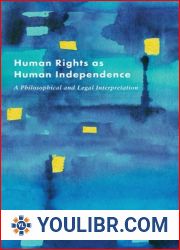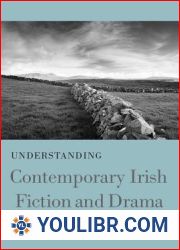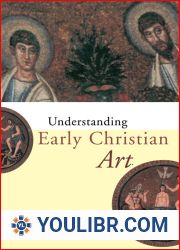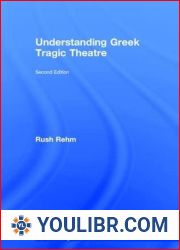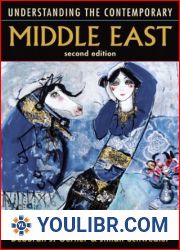
BOOKS - The Empiricists: Locke: Concerning Human Understanding; Berkeley: Principles ...

The Empiricists: Locke: Concerning Human Understanding; Berkeley: Principles of Human Knowledge and 3 Dialogues; Hume: Concerning Human Understanding and Concerning Natural Religion
Author: Richard Taylor
Year: December 21, 1960
Format: PDF
File size: PDF 540 KB
Language: English
Year: December 21, 1960
Format: PDF
File size: PDF 540 KB
Language: English
The rise and fall of British Empiricism is probably philosophy's most dramatic example of pushing premises to their most logical and fatal conclusions. Empiricism was born in 1690 with the appearance of Locke's Essay, and it flourished as the reigning school until 1739 when Hume's Treatise strangled it with its own cinctures. What started as and "common sense and " dualism in Locke dwindled into the optimistic idealism of Berkeley, and then into the disintegrating skepticism of Hume. In just fifty years the men who claimed that all knowledge derives from experience, from the testimony of the senses, had shown that if this is really so we lose not only the material world, the and "law and " of cause and effect, and other people, but also our own selves: the and "I and " becomes no more than a succession of sensations. Thus, while Empiricism annihilated the and "innate ideas and " of Rationalism and set the stage for Immanuel Kant, to many thinkers it also meant the irrevocable end of philosophic certainty.All the essays in this volume are complete except that of Locke, for which even he advised abridgment.
descarregar ficheiro pdf pdf dosyasını indir 下载 pdf 文件 להוריד קובץ PDF скачать файл PDF download pdf file PDFファイルをダウンロード pobierz plik pdf تنزيل ملف pdf pdf 파일 다운로드 download pdf file PDF-Datei herunterladen télécharger le fichier pdf Scarica il file pdf descargar archivo pdf
The rise and fall of British Empiricism is probably philosophy's most dramatic example of pushing premises to their most logical and fatal conclusions. Empiricism was born in 1690 with the appearance of Locke's Essay, and it flourished as the reigning school until 1739 when Hume's Treatise strangled it with its own cinctures. What started as and "common sense and " dualism in Locke dwindled into the optimistic idealism of Berkeley, and then into the disintegrating skepticism of Hume. In just fifty years the men who claimed that all knowledge derives from experience, from the testimony of the senses, had shown that if this is really so we lose not only the material world, the and "law and " of cause and effect, and other people, but also our own selves: the and "I and " becomes no more than a succession of sensations. Thus, while Empiricism annihilated the and "innate ideas and " of Rationalism and set the stage for Immanuel Kant, to many thinkers it also meant the irrevocable end of philosophic certainty.All the essays in this volume are complete except that of Locke, for which even he advised abridgment.
Рост и падение британского эмпиризма, вероятно, является наиболее драматичным примером философии, подталкивающей предпосылки к своим наиболее логичным и фатальным выводам. Эмпиризм родился в 1690 году с появлением «Эссе Локеса», и он процветал как царствующая школа до 1739 года, когда «Трактат Хумса» задушил его собственными цинктурами. То, что начиналось как и здравый смысл и дуализм в Локке, сошло на нет в оптимистическом идеализме Беркли, а затем в распадающемся скептицизме Юма. Всего за пятьдесят лет люди, утверждавшие, что все знания происходят из опыта, из показаний органов чувств, показали, что если это действительно так, мы теряем не только материальный мир, закон и причины и следствия, и другие люди, но и мы сами и я и становится не более чем последовательностью ощущений. Таким образом, в то время как эмпиризм уничтожил и врожденные идеи и рационализма и подготовил почву для Иммануила Канта, для многих мыслителей это также означало безвозвратный конец философской определенности. Все эссе в этом томе полны, кроме эссе Локка, для которого даже он советовал сокращаться.
La crescita e la caduta dell'empirismo britannico è probabilmente l'esempio più drammatico di filosofia che spinge i presupposti verso le loro conclusioni più logiche e fatali. L'empirismo nacque nel 1690 con il Saggio di Locke, e fiorì come scuola regnante fino al 1739, quando il Trattato di Yuma lo strangolò con le sue figure. Ciò è iniziato come il «buon senso» e il dualismo di Locke si sono ridotti all'idealismo ottimista di Berkeley e poi allo scetticismo di Youm. In soli cinquant'anni, gli uomini che sostenevano che tutte le conoscenze venivano dall'esperienza, dalle testimonianze dei sentimenti, hanno dimostrato che se è vero, non perdiamo solo il mondo materiale, la legge e la legge «e» le cause e le indagini, e altre persone, ma anche le nostre, e «I e» non sono più di una serie di sensazioni. Così, mentre l'empirismo distrusse anche le «idee innate e» razionalismo e preparò il terreno per Immanuel Kant, per molti pensatori significò anche la fine irrevocabile della certezza filosofica. Tutti i saggi di questo volume sono pieni, tranne quello di Locke, per il quale anche lui ha consigliato di ridursi.
La croissance et la chute de l'empirisme britannique est probablement l'exemple le plus dramatique de la philosophie qui pousse les prémisses à leurs conclusions les plus logiques et les plus fatales. L'empirisme est né en 1690 avec l'apparition de l'Essai Locke, et il a prospéré comme une école régnante jusqu'en 1739, lorsque le Traité de Yuma l'a étranglé avec ses propres figures. Ce qui a commencé comme le « bon sens et » dualisme chez Locke s'est réduit à l'idéalisme optimiste de Berkeley, puis au scepticisme de Hume. En seulement cinquante ans, les hommes qui prétendaient que toutes les connaissances provenaient de l'expérience, des témoignages des sentiments, ont montré que si c'était vraiment le cas, nous perdons non seulement le monde matériel, la loi et la loi « et » les causes et les conséquences, et d'autres personnes, mais aussi les nôtres : et « I et » ne devient plus qu'une série de sensations. Ainsi, alors que l'empirisme a détruit les « idées innées et » du rationalisme et a préparé le terrain pour Immanuel Kant, pour de nombreux penseurs, cela signifiait aussi la fin irrévocable de la certitude philosophique. Tous les essais de ce volume sont complets, sauf l'essai de Locke, pour lequel il a même conseillé de réduire.
El crecimiento y caída del empirismo británico es probablemente el ejemplo más dramático de la filosofía, empujando las premisas a sus conclusiones más lógicas y fatales. El empirismo nació en 1690 con la aparición del «Ensayo Locke», y prosperó como escuela reinante hasta 1739, cuando el «Tratado de Hume» lo estranguló con sus propias figuras. Lo que comenzó como el «sentido común y» dualismo en Locke se redujo al idealismo optimista de Berkeley, y luego al escepticismo desintegrador de Hume. En apenas cincuenta años, los hombres que afirmaron que todo el conocimiento proviene de la experiencia, del testimonio de los sentimientos, han demostrado que si realmente lo es, perdemos no sólo el mundo material, la ley y la ley «y» las causas y los efectos, y otras personas, sino también las nuestras: y «I y» se convierte en nada más que una serie de sensaciones. Así, mientras el empirismo destruía también las «ideas innatas y» del racionalismo y preparaba el terreno para Immanuel Kant, para muchos pensadores también significaba el final irrevocable de la certeza filosófica. Todos los ensayos de este volumen están completos, excepto el de Locke, para el que incluso él aconsejó acortarse.
Der Aufstieg und Fall des britischen Empirismus ist wohl das dramatischste Beispiel einer Philosophie, die die Prämissen zu ihren logischsten und fatalsten Schlussfolgerungen treibt. Empirismus wurde 1690 mit dem Erscheinen von Locke's Essay geboren und blühte als herrschende Schule bis 1739, als Humes Traktat ihn mit seinen eigenen Figuren erwürgte. Was als „gesunder Menschenverstand“ und „Dualismus“ bei Locke begann, wurde auf Berkeleys optimistischen Idealismus und dann auf Humes zerfallende Skepsis reduziert. In nur fünfzig Jahren haben die Männer, die behaupteten, dass alles Wissen aus der Erfahrung stammt, aus dem Zeugnis der Sinne, gezeigt, dass, wenn dies wirklich der Fall ist, wir nicht nur die materielle Welt, das Gesetz und das Gesetz „und“ Ursache und Wirkung und andere Menschen, sondern auch unsere eigenen verlieren: und das „Ich und“ wird nichts weiter als eine Reihe von Empfindungen. Während also der Empirismus sowohl die „angeborenen Ideen als auch den“ Rationalismus vernichtete und Immanuel Kant den Boden bereitete, bedeutete dies für viele Denker auch das unwiderrufliche Ende der philosophischen Gewissheit. Alle Essays in diesem Band sind vollständig, mit Ausnahme von Lockes Essay, für den sogar er zur Kürzung riet.
O crescimento e a queda do empirismo britânico provavelmente é o exemplo mais dramático de filosofia que impulsiona os pré-requisitos para suas conclusões mais lógicas e fatais. O Empirismo nasceu em 1690, com o «ensaio de Locke», e floresceu como uma escola reinante até 1739, quando o Tratado de Yuma o estrangulou com suas próprias figuras. O que começou como o «bom senso e» dualismo de Locke reduziu-se ao idealismo otimista de Berkeley e, em seguida, ao ceticismo em desuso de Youm. Ao longo de apenas cinquenta anos, os homens que alegaram que todo o conhecimento decorria da experiência, a partir de testemunhos de sentimentos, mostraram que, se realmente é, não perdemos apenas o mundo material, a lei e a lei «e» as causas e as consequências, e outras pessoas, mas também as nossas próprias, e «I e» não passam de uma série de sensações. Assim, enquanto o empirismo também destruiu «ideias congênitas e» racionalismo e preparou o terreno para Imanuel Kant, para muitos pensadores isso significou também o fim irrevogável da certeza filosófica. Todos os ensaios neste volume estão completos, exceto o de Locke, para o qual até ele aconselhou a contração.
The rise and fall of British Empiricism is probably philosophy's most dramatic example of pushing premises to their most logical and fatal conclusions. Empiricism was born in 1690 with the appearance of Locke's Essay, and it flourished as the reigning school until 1739 when Hume's Treatise strangled it with its own cinctures. What started as and "common sense and " dualism in Locke dwindled into the optimistic idealism of Berkeley, and then into the disintegrating skepticism of Hume. In just fifty years the men who claimed that all knowledge derives from experience, from the testimony of the senses, had shown that if this is really so we lose not only the material world, the and "law and " of cause and effect, and other people, but also our own selves: the and "I and " becomes no more than a succession of sensations. Thus, while Empiricism annihilated the and "innate ideas and " of Rationalism and set the stage for Immanuel Kant, to many thinkers it also meant the irrevocable end of philosophic certainty.All the essays in this volume are complete except that of Locke, for which even he advised abridgment.
Рост и падение британского эмпиризма, вероятно, является наиболее драматичным примером философии, подталкивающей предпосылки к своим наиболее логичным и фатальным выводам. Эмпиризм родился в 1690 году с появлением «Эссе Локеса», и он процветал как царствующая школа до 1739 года, когда «Трактат Хумса» задушил его собственными цинктурами. То, что начиналось как и здравый смысл и дуализм в Локке, сошло на нет в оптимистическом идеализме Беркли, а затем в распадающемся скептицизме Юма. Всего за пятьдесят лет люди, утверждавшие, что все знания происходят из опыта, из показаний органов чувств, показали, что если это действительно так, мы теряем не только материальный мир, закон и причины и следствия, и другие люди, но и мы сами и я и становится не более чем последовательностью ощущений. Таким образом, в то время как эмпиризм уничтожил и врожденные идеи и рационализма и подготовил почву для Иммануила Канта, для многих мыслителей это также означало безвозвратный конец философской определенности. Все эссе в этом томе полны, кроме эссе Локка, для которого даже он советовал сокращаться.
La crescita e la caduta dell'empirismo britannico è probabilmente l'esempio più drammatico di filosofia che spinge i presupposti verso le loro conclusioni più logiche e fatali. L'empirismo nacque nel 1690 con il Saggio di Locke, e fiorì come scuola regnante fino al 1739, quando il Trattato di Yuma lo strangolò con le sue figure. Ciò è iniziato come il «buon senso» e il dualismo di Locke si sono ridotti all'idealismo ottimista di Berkeley e poi allo scetticismo di Youm. In soli cinquant'anni, gli uomini che sostenevano che tutte le conoscenze venivano dall'esperienza, dalle testimonianze dei sentimenti, hanno dimostrato che se è vero, non perdiamo solo il mondo materiale, la legge e la legge «e» le cause e le indagini, e altre persone, ma anche le nostre, e «I e» non sono più di una serie di sensazioni. Così, mentre l'empirismo distrusse anche le «idee innate e» razionalismo e preparò il terreno per Immanuel Kant, per molti pensatori significò anche la fine irrevocabile della certezza filosofica. Tutti i saggi di questo volume sono pieni, tranne quello di Locke, per il quale anche lui ha consigliato di ridursi.
La croissance et la chute de l'empirisme britannique est probablement l'exemple le plus dramatique de la philosophie qui pousse les prémisses à leurs conclusions les plus logiques et les plus fatales. L'empirisme est né en 1690 avec l'apparition de l'Essai Locke, et il a prospéré comme une école régnante jusqu'en 1739, lorsque le Traité de Yuma l'a étranglé avec ses propres figures. Ce qui a commencé comme le « bon sens et » dualisme chez Locke s'est réduit à l'idéalisme optimiste de Berkeley, puis au scepticisme de Hume. En seulement cinquante ans, les hommes qui prétendaient que toutes les connaissances provenaient de l'expérience, des témoignages des sentiments, ont montré que si c'était vraiment le cas, nous perdons non seulement le monde matériel, la loi et la loi « et » les causes et les conséquences, et d'autres personnes, mais aussi les nôtres : et « I et » ne devient plus qu'une série de sensations. Ainsi, alors que l'empirisme a détruit les « idées innées et » du rationalisme et a préparé le terrain pour Immanuel Kant, pour de nombreux penseurs, cela signifiait aussi la fin irrévocable de la certitude philosophique. Tous les essais de ce volume sont complets, sauf l'essai de Locke, pour lequel il a même conseillé de réduire.
El crecimiento y caída del empirismo británico es probablemente el ejemplo más dramático de la filosofía, empujando las premisas a sus conclusiones más lógicas y fatales. El empirismo nació en 1690 con la aparición del «Ensayo Locke», y prosperó como escuela reinante hasta 1739, cuando el «Tratado de Hume» lo estranguló con sus propias figuras. Lo que comenzó como el «sentido común y» dualismo en Locke se redujo al idealismo optimista de Berkeley, y luego al escepticismo desintegrador de Hume. En apenas cincuenta años, los hombres que afirmaron que todo el conocimiento proviene de la experiencia, del testimonio de los sentimientos, han demostrado que si realmente lo es, perdemos no sólo el mundo material, la ley y la ley «y» las causas y los efectos, y otras personas, sino también las nuestras: y «I y» se convierte en nada más que una serie de sensaciones. Así, mientras el empirismo destruía también las «ideas innatas y» del racionalismo y preparaba el terreno para Immanuel Kant, para muchos pensadores también significaba el final irrevocable de la certeza filosófica. Todos los ensayos de este volumen están completos, excepto el de Locke, para el que incluso él aconsejó acortarse.
Der Aufstieg und Fall des britischen Empirismus ist wohl das dramatischste Beispiel einer Philosophie, die die Prämissen zu ihren logischsten und fatalsten Schlussfolgerungen treibt. Empirismus wurde 1690 mit dem Erscheinen von Locke's Essay geboren und blühte als herrschende Schule bis 1739, als Humes Traktat ihn mit seinen eigenen Figuren erwürgte. Was als „gesunder Menschenverstand“ und „Dualismus“ bei Locke begann, wurde auf Berkeleys optimistischen Idealismus und dann auf Humes zerfallende Skepsis reduziert. In nur fünfzig Jahren haben die Männer, die behaupteten, dass alles Wissen aus der Erfahrung stammt, aus dem Zeugnis der Sinne, gezeigt, dass, wenn dies wirklich der Fall ist, wir nicht nur die materielle Welt, das Gesetz und das Gesetz „und“ Ursache und Wirkung und andere Menschen, sondern auch unsere eigenen verlieren: und das „Ich und“ wird nichts weiter als eine Reihe von Empfindungen. Während also der Empirismus sowohl die „angeborenen Ideen als auch den“ Rationalismus vernichtete und Immanuel Kant den Boden bereitete, bedeutete dies für viele Denker auch das unwiderrufliche Ende der philosophischen Gewissheit. Alle Essays in diesem Band sind vollständig, mit Ausnahme von Lockes Essay, für den sogar er zur Kürzung riet.
O crescimento e a queda do empirismo britânico provavelmente é o exemplo mais dramático de filosofia que impulsiona os pré-requisitos para suas conclusões mais lógicas e fatais. O Empirismo nasceu em 1690, com o «ensaio de Locke», e floresceu como uma escola reinante até 1739, quando o Tratado de Yuma o estrangulou com suas próprias figuras. O que começou como o «bom senso e» dualismo de Locke reduziu-se ao idealismo otimista de Berkeley e, em seguida, ao ceticismo em desuso de Youm. Ao longo de apenas cinquenta anos, os homens que alegaram que todo o conhecimento decorria da experiência, a partir de testemunhos de sentimentos, mostraram que, se realmente é, não perdemos apenas o mundo material, a lei e a lei «e» as causas e as consequências, e outras pessoas, mas também as nossas próprias, e «I e» não passam de uma série de sensações. Assim, enquanto o empirismo também destruiu «ideias congênitas e» racionalismo e preparou o terreno para Imanuel Kant, para muitos pensadores isso significou também o fim irrevogável da certeza filosófica. Todos os ensaios neste volume estão completos, exceto o de Locke, para o qual até ele aconselhou a contração.







